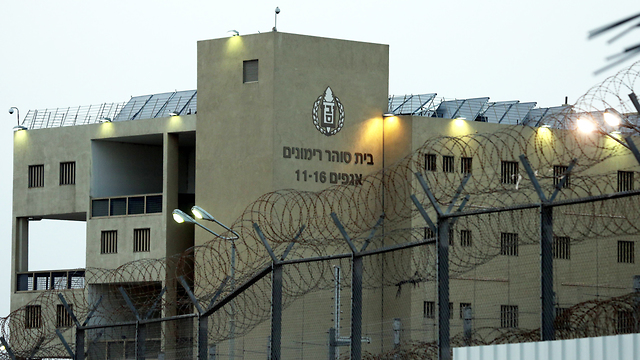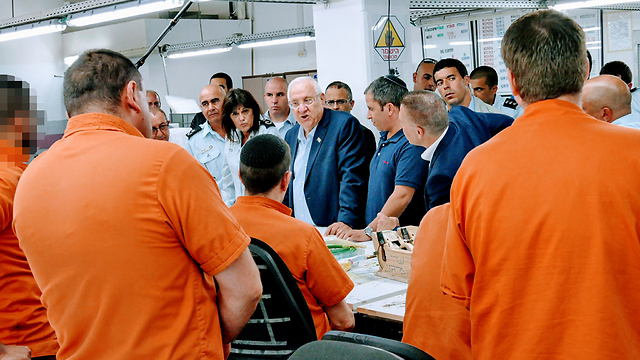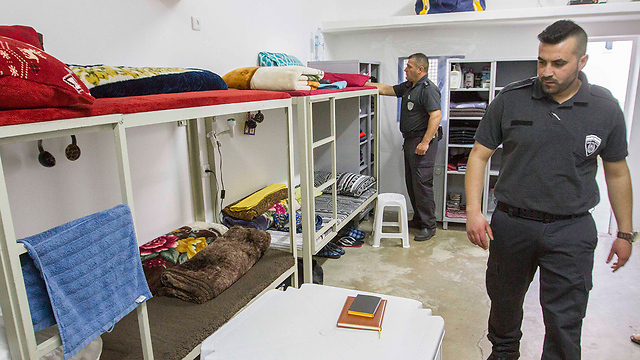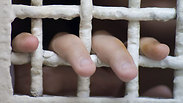

State asks court for 9 year extension on prison conditions
While Supreme Court ruled that prisoners must receive 4.5 square meters of living space by end of 2018, state asking for 9 year extension, saying ruling would require them to release about a third of all prisoners; community service as alternative to short sentences being examined.
The state is asking the Supreme Court for an extension of the 2027 deadline by which it was mandated to provide prisoners with reasonable amounts of living space. The court's original ruling—from June, 2017—was intended to be implemented in 18 months from the time it was issued.
After the Association for Civil Rights in Israel (ACRI) petitioned the court, former justice Elyakim Rubinstein ruled that prison cells must be no smaller than 4.5 square meters per person, including bathroom and shower, or four square meters without them—as the law, in fact, already states.
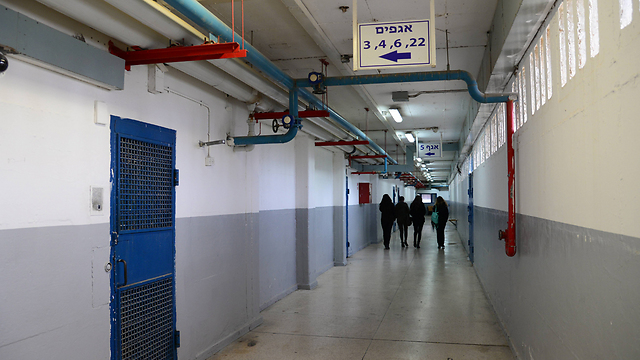
Rubinstein, along with justices Hanan Melcer and Uri Shoham, gave the state 18 months to implement the ruling.
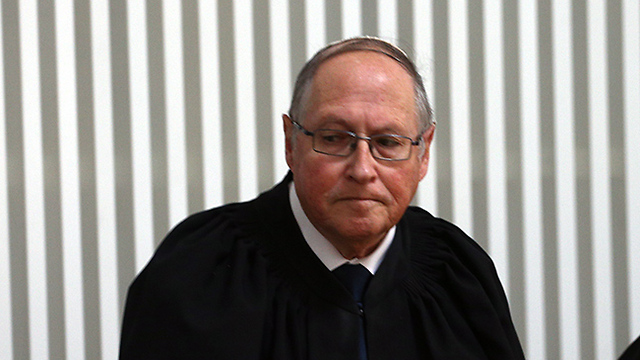
The ruling was supposed to be partially implemented by next week, March 13, when each prisoner was supposed to allotted three square meters. By the end of the year, the verdict said, prisoners will receive the full four and a half square meters.
In its response, the state told the court that implementing the ruling would require a considerable investment—some two billion shekels over the span of nine years—and that it has decided to introduce special legislation to expand administrative releases for prisons. "Naturally, these actions will require significant and ongoing investment by the state," the state's response said, also calling the court's decision "highly irregular."
According to the state, the Israel Prison Service is expected to reach a third of its goal regarding the number of prison cells fitting the new standards by the end of the year. Furthermore, in order to reach the goal of three square meters per prisoner, there is a deficit of 3,000 prison spots; and double that number if the goal of four and a half square meters is to be reached.
There are some 18,000 prisoners in Israel today, one third of them security prisoners. In order to comply with the court's ruling, a third of the country’s prisoners would need to be released, the state said.
"These figures bring us to the conclusion that releasing prisoners at such proportions poses a danger to public safety and will severely harm the principle of punishment," the state argued, adding it was considering the possibility of imposing up to nine months of community service, as opposed to the current six months, in lieu of prison, thereby alleviating crowding.
'Living space central to human dignity'
The problem of overcrowding in prisons is not new and committees broaching the issue in the past ruled that it stems from a combination of too small prison cells and an increase in arrests and incarcerations.
Despite a series of rulings and reports issued on the matter, prisoners currently have an average of 3.16 square meters.
"Physical living space for prisoners is one of their basic needs," wrote Justice Rubinstein. "It is essential in every respect that there be an area in which a prisoner can live his life within the limits of his imprisonment. We are dealing with the core of human dignity."
"The implications of our decision are clear, as noted by the state. An immediate increase in the area of living will impose a significant burden on state finances, and indeed one possibility is that the state will act to renovate and expand prison and detention facilities. But this is not the only option available to the executive and legislative authorities to solve part of the problem."














